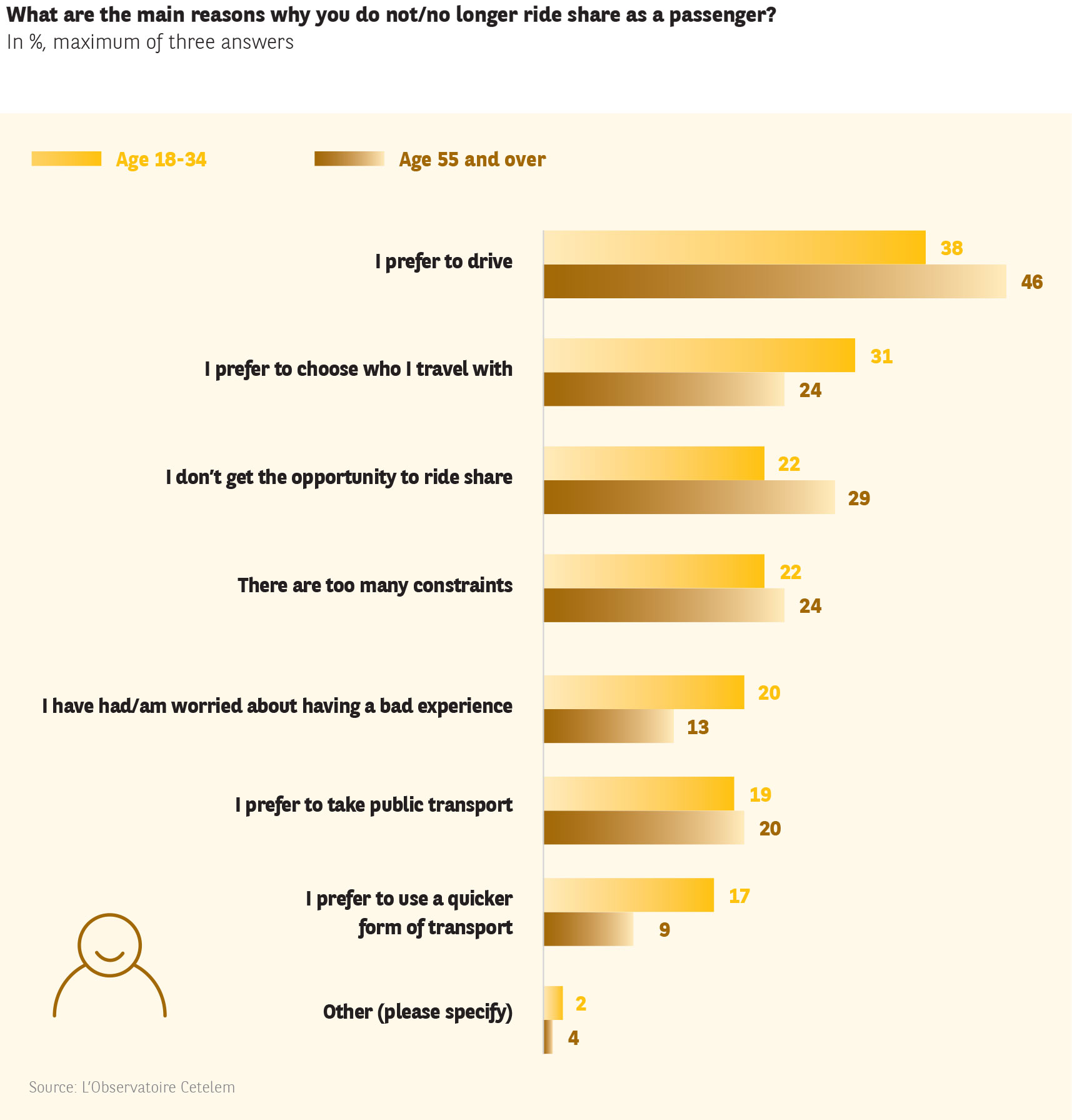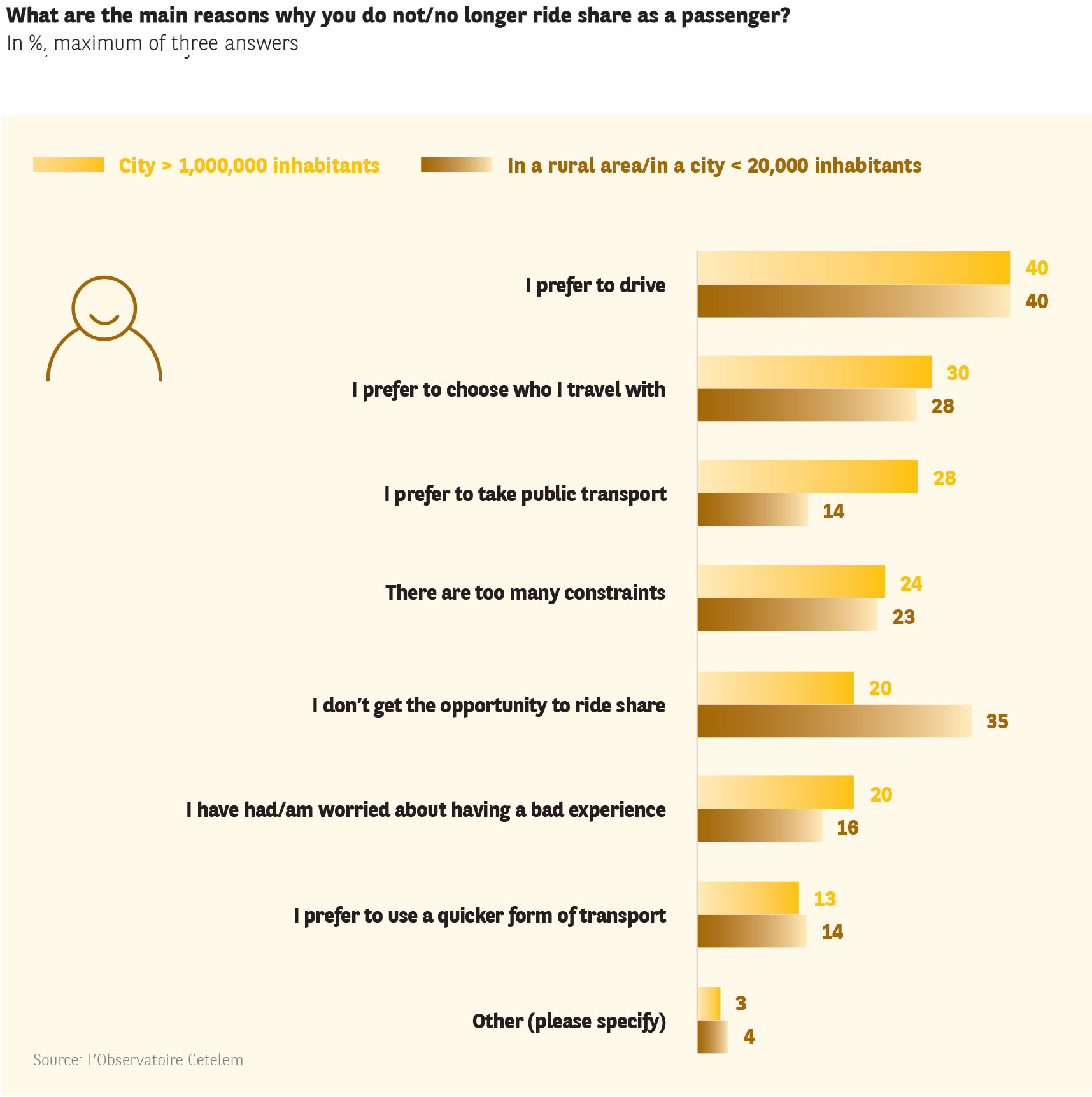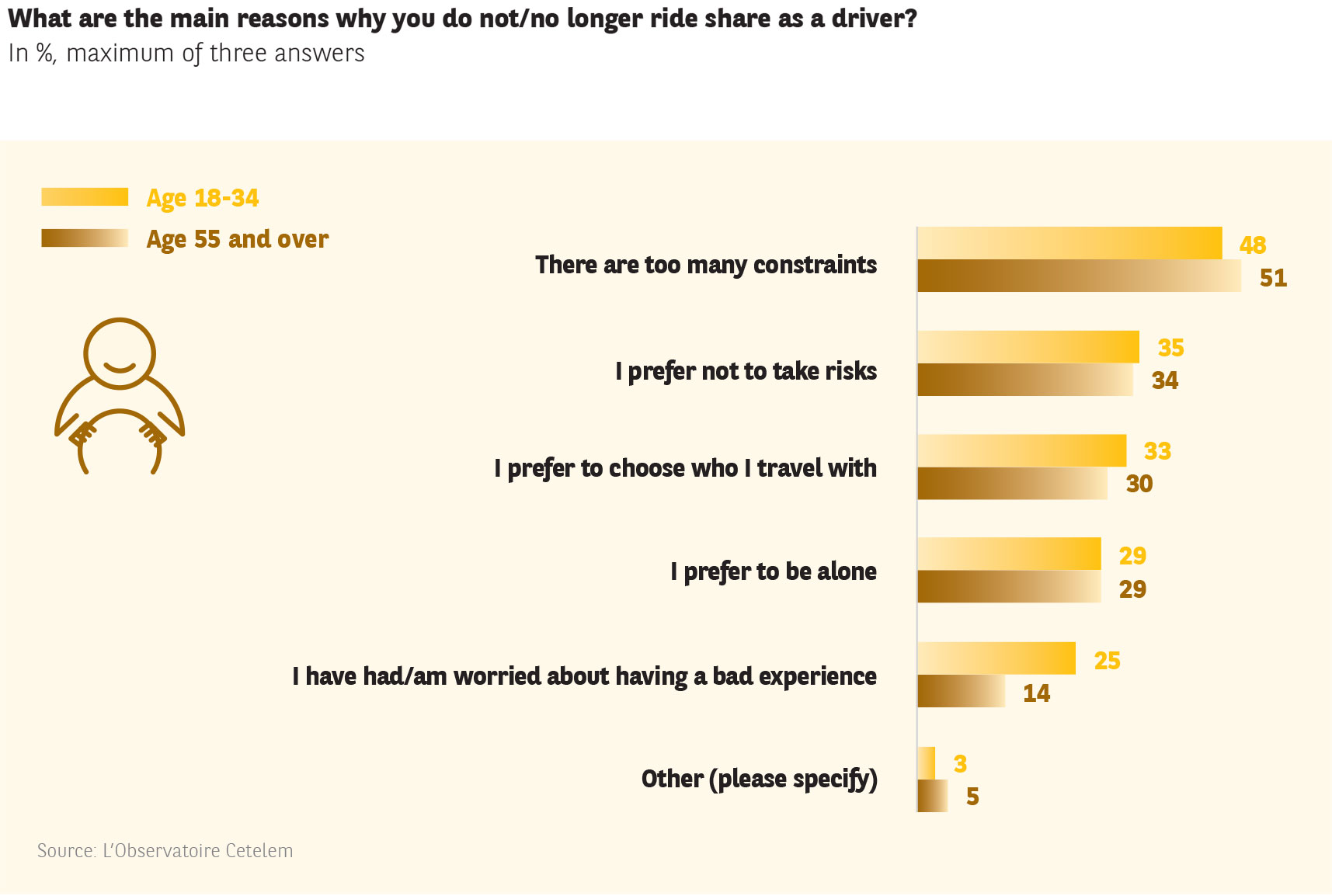Rejecting ride sharing : money isn’t everything


THE YOUNG LIKE TO CHOOSE WHO THEY TRAVEL WITH
The reasons why people avoid ride sharing are completely unrelated. Many passengers simply prefer to drive (44%), especially seniors (46%), with fewer millennials sharing this view (38%). This attitude is most prevalent in the United States and Germany, with the Japanese being the happiest to let someone else drive.
Millennials also like being able to decide who they travel with (31%). This generation’s keenness to travel with friends probably explains this view. This point is important to South Africans and Turks, much less so to the Italians, Japanese and Belgians (Fig. 29).
FIG. 29 :
IN RURAL AREAS, RIDE SHARING IS NOT REALLY AN OPTION
Urbanites and rural populations do not have the same level of access to ride sharing. 35% of country dwellers don’t have the opportunity to ride share, compared with just 20% of people in cities. Conversely, while 28% of inhabitants of large cities prefer public transport, this is only true of 14% of those who live in smaller towns with fewer services.
Lastly, one-quarter of respondents believe that ride sharing comes with too many constraints. And for once, young and old, urbanites and country dwellers, all cite this point in similar proportions (Fig. 30).
FIG. 30 :
SENIORS WANT TRAVEL FREEDOM, MILLENNIALS ARE MORE APPREHENSIVE
For drivers, the constraints inherent to ridesharing prevent them from embracing the practice. Seniors are keener than millennials to preserve their travel freedom (38% vs.
32%), 35% of respondents also state that they do not want to take any risks. Identical reasons are given by millennials and seniors, urbanites and country dwellers. One nation, Brazil, stands apart with 54%, probably due to a strong sense of fear about safety.
Millennials are also more likely to cite previous bad experiences as a reason for giving up ride sharing (25% vs. 14%). Drivers who have been left with a negative perception tend to live in cities, which is the case in Turkey, Japan or China (Fig. 31).
FIG. 31 :
Ride sharing: fears over safety
35 % of people avoid ride sharing because they do not want to take any risks. This is a choice that seems justified by experiences in China. Following two murders in July 2018, the Chinese government banned ride sharing services based on ride hailing. In July 2019, these services were still suspended. At the time, DiDi had not yet set a timetable for their resumption.



